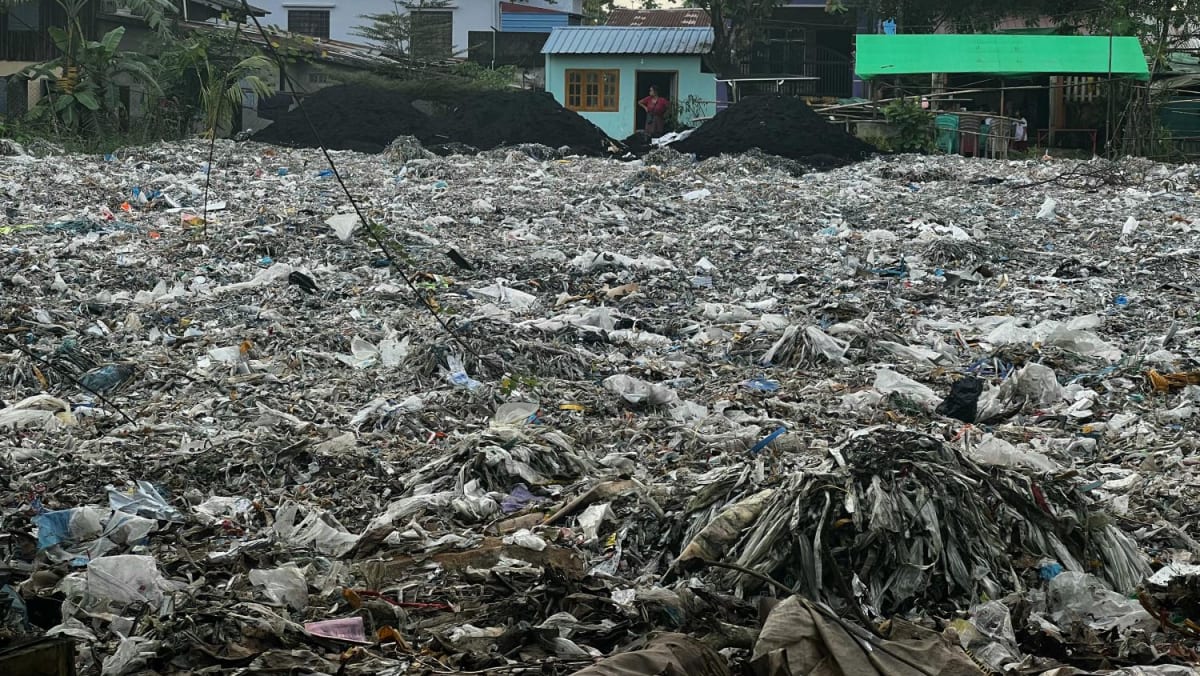YANGON — In a working-class neighbourhood of Myanmar’s Yangon, plastic waste is piled a metre high, the toxic product of what a recent investigation said is rampant dumping of Western trash.
POROUS BORDER
Just how the waste enters Myanmar, and in what quantities, is unclear.
The investigation suggests Thailand is a key passage for illegally exported plastics.
According to United Nations Comtrade data, most of Myanmar’s plastic waste imports come from Thailand.
Almost 7,500 tons entered in 2021, the last year it reported figures.
But the roughly 2,400km border the countries share is extremely porous and crossed with ease by traffickers and smugglers.
Officials on both sides of the border do little to inspect arriving waste, Lighthouse Reports said.
“The data collected is often out of date, and there’s no check on that data,” said Mr Willie Wilson, former vice chair of Interpol’s Pollution Crime Working Group, referring not just to Comtrade but all trade data.
“We’re left with this fog of mis-declared, missing data. It’s a licence to hide in plain sight.”
In July Myanmar’s junta said there was a US$1.639 billion (S$2.2 billion) difference between what Thailand said it exported to Myanmar, and what Myanmar said it imported from Thailand.
The yawning discrepancy “might be caused by illegal trade”, its Illegal Trade Eradication Steering Committee said.
AFP contacted several of the companies whose products were found in Myanmar to ask how they might have arrived, but received no immediate reply.
Locals in Shwepyithar told AFP that much of the waste dumped in their neighbourhood came from recycling factories in a nearby industrial zone.
But the risks of protesting such a move in Myanmar, which has been run by a military junta since a 2021 coup, are high.
That has left an open area in Shwepyithar once earmarked for a football field transformed into a morass of plastic waste, one resident said.
“I know it’s not good for the long term,” she told AFP, requesting anonymity to speak about the sensitive issues.
“I don’t like it at all,” said another, who similarly spoke on condition of not being identified.
“But we can’t do anything.” AFP


